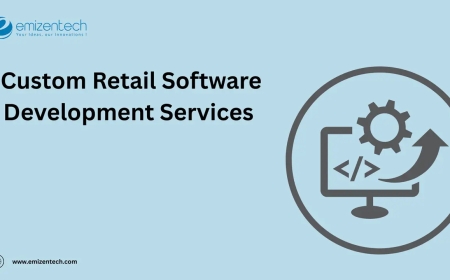What Is an Initial Coin Offering (ICO)? A Beginner’s Guide
Discover how Initial Coin Offerings (ICOs) are transforming blockchain fundraising. This beginner’s guide explains what an ICO is, how it works, benefits, risks, and how an ICO Development Company and crypto token development services can help launch your project successfully.

The next big thing in fundraising isnt in Wall Street its on the blockchain.
In recent years, Initial Coin Offerings (ICOs) have transformed the way startups raise capital. Whether you're an investor looking to tap into emerging crypto opportunities or an entrepreneur seeking funding for a blockchain-based project, understanding how ICOs work is crucial. With ICOs gaining momentum globally, businesses often rely on an ICO Development Company to ensure regulatory compliance, security, and technical integrity throughout the fundraising process.
In this beginners guide, well dive deep into the world of ICOs what they are, how they work, their benefits and risks, and how you can participate safely.
What Is an ICO?
An Initial Coin Offering (ICO) is a fundraising mechanism in which a company or project sells digital tokens or coins to investors in exchange for cryptocurrencies (like Bitcoin or Ethereum) or fiat currency. These tokens often represent access to a platform, a service, or even a share of profits in the future.
Think of it like crowdfunding except instead of receiving a T-shirt or a discount, you receive digital tokens that may have real-world value.
Typically, startups partner with an ICO development company to handle smart contract coding, wallet integration, token standards, and investor dashboards to ensure a smooth and secure launch.
How Does an ICO Work?
The basic ICO process follows these steps:
-
Whitepaper Release: The company publishes a whitepaper outlining its project goals, how it plans to use the funds, the total number of tokens, the ICO timeline, and more.
-
Pre-sale/Private Sale: A limited group of investors (usually venture capitalists) get early access to tokens at discounted rates.
-
Public Sale: Tokens are made available to the general public.
-
Distribution: Investors receive their tokens in their wallets, and the raised funds are used to build the project.
Most ICOs are built on platforms like Ethereum due to its flexible ERC-20 and ERC-721 token standards, and they use smart contracts to automate the token distribution process.
ICO vs IPO: Whats the Difference?
Although they sound similar, ICOs and IPOs (Initial Public Offerings) are quite different:
|
Feature |
ICO |
IPO |
|
Regulation |
Light (varies by country) |
Strictly regulated |
|
Investor Rights |
No ownership, usually utility |
Equity/Ownership |
|
Accessibility |
Open to global investors |
Typically limited to institutions |
|
Speed of Launch |
Weeks to months |
Months to years |
|
Fundraising Medium |
Cryptocurrency |
Fiat currency |
ICOs are decentralized and accessible globally, making them particularly appealing to blockchain startups.
Types of ICOs
There are various types of ICOs based on structure and target audience:
-
Public ICOs: Open to anyone with access to the internet and a crypto wallet.
-
Private ICOs: Only accredited or institutional investors are invited to participate.
-
Utility Token ICOs: Offer tokens that give access to a product or service.
-
Security Token Offerings (STOs): Tokens are backed by real assets and comply with securities laws.
Understanding which type suits your project is vital, and this is where a seasoned ICO development company can help with strategy, compliance, and infrastructure.
Benefits of ICOs for Startups
Launching an ICO comes with a host of benefits:
-
Global Reach: ICOs are not limited by borders, allowing you to reach investors worldwide.
-
Faster Fundraising: Compared to traditional methods, ICOs can raise millions in days or even hours.
-
No Intermediaries: ICOs cut out banks, brokers, and venture capitalists.
-
Community Engagement: Early investors become evangelists who help promote your product.
For blockchain startups aiming to disrupt industries, ICOs offer a low-barrier path to scalable capital infusion.
Risks and Challenges Associated With ICOs
Despite their benefits, ICOs come with potential pitfalls:
-
Scams and Fraud: Some ICOs turn out to be rug-pulls, where the creators vanish with investor funds.
-
Regulatory Uncertainty: Governments around the world are still defining how to regulate ICOs.
-
Market Volatility: Token value can fluctuate dramatically post-ICO.
-
Lack of Investor Protection: Unlike traditional securities, ICO investors have little recourse in case of failure.
Hence, both investors and companies must do their due diligence before participating in or launching an ICO.
Regulatory Landscape of ICOs
The legal framework for ICOs varies widely:
-
USA: The SEC often treats ICO tokens as securities, subjecting them to strict regulations.
-
EU: Countries like Switzerland have ICO-friendly policies.
-
Asia: China has banned ICOs, while Japan regulates them under its Financial Services Agency.
Working with a compliance-focused ICO development company helps startups navigate this evolving landscape and avoid legal trouble.
How to Launch a Successful ICO
Launching an ICO requires a robust plan:
-
Market Research: Identify a real problem your project solves.
-
Tokenomics Design: Define token utility, supply, distribution, and incentives.
-
Smart Contract Development: Build secure, audited smart contracts.
-
Create a Whitepaper: Be transparent and detailed about your project.
-
Build a Community: Use social media, Telegram, Discord, and forums like Bitcointalk.
-
KYC/AML Compliance: Implement proper investor verification.
-
Hire Professionals: Engage a reputable ICO development company for end-to-end support.
An experienced team can be the difference between a successful ICO and a failed one.
How Investors Can Evaluate ICOs
Before investing in an ICO, ask these questions:
-
Is the whitepaper transparent and well-written?
-
Does the team have verifiable experience?
-
Is the token utility clearly defined?
-
Is the smart contract audited?
-
Is there a roadmap with achievable milestones?
-
Is the community active and engaged?
You can also check aggregator sites like ICOBench, CoinMarketCap ICO calendar, and Reddit discussions to gauge public sentiment.
The Role of Crypto Token Development Services
A successful ICO is more than just launching a website and smart contract. It requires expert token engineering, platform integration, secure wallets, and analytics dashboards all part of crypto token development services offered by leading firms.
These services include:
-
Custom token creation (ERC-20, BEP-20, TRC-20, etc.)
-
Tokenomics and smart contract design
-
ICO dashboard development
-
Multi-layer wallet integration
-
Regulatory support
-
Marketing automation tools
-
Post-sale token listing guidance
Hiring the right development partner ensures your ICO is not only technologically sound but also legally compliant and market-ready.
Final Thoughts
ICOs remain a powerful tool for blockchain innovation and startup fundraising. They empower small teams with big ideas to bring disruptive products to the global stage. But they also come with risks that need to be carefully managed.
For entrepreneurs, partnering with an experienced ICO Development Company offers critical support in creating, managing, and launching a successful campaign. And for investors, due diligence and a skeptical eye are your best defenses against scams.
Whether youre creating your own token or investing in a new project, understanding the ICO ecosystem is the first step to unlocking its full potential in the decentralized future.
Need Help With Your ICO or Token Launch?
Consider partnering with specialists like Suffescom Solutions Inc., who offer end-to-end crypto token development services from whitepaper creation and token engineering to full ICO dashboard deployment and regulatory compliance support.






































